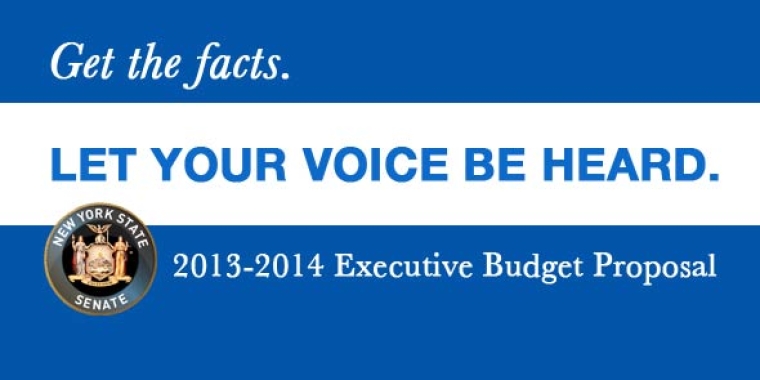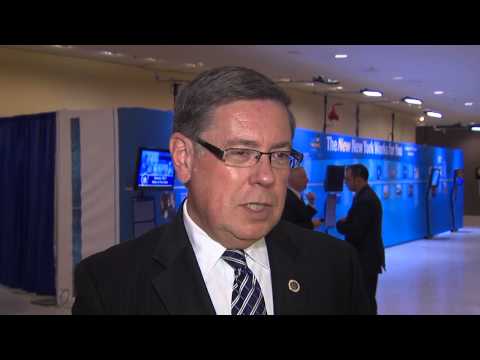
Seward Bill Key Component Of Legislative Agreement To Combat Heroin
James L. Seward
June 18, 2014
ALBANY, 06/18/14 -- State Senator James L. Seward (R/C/I – Oneonta) today announced an agreement between legislative leaders and the governor on several bills aimed at fighting the growing heroin and opioid abuse epidemic. The package includes a bill, sponsored by Senator Seward, to improve access to insurance coverage for substance abuse treatment and dependency services.
“My bill improving access to insurance coverage for those seeking addiction treatment, along with additional measures crafted by the Senate Joint Task Force on Heroin and Opioid Addiction, have been high priorities during the final days of the legislative session,” said Senator Seward. “It was imperative that we reached consensus on these bills because their enactment will save lives.”
Senator Seward served on the New York State Senate Joint Task Force on Heroin and Opioid Addiction and hosted a task force forum in Oneonta to solicit input from local health care professionals, addiction experts, law enforcement officials, and concerned citizens. In all, 18 forums were held across the state to focus attention on the growing heroin epidemic.
“The forums, which included expert testimony and real-life stories, clearly illustrated the need for swift action. At the forum I hosted, I heard from addiction specialists, law enforcement leaders, those in recovery, and a mother who lost her son to an addiction related suicide. It was clear, in my mind, that this destructive heroin epidemic had to be addressed immediately and a multi-prong strategy was needed to truly produce results," Seward added
Senate bill 7912 requires health plans to use a health care professional who specializes in substance abuse when making coverage decisions, standardizes the criteria used to make coverage determinations, ensures proper oversight by the Department of Financial Services (DFS), and creates a workgroup to study and make recommendations on improving access to treatment services. The bill also creates an expedited appeal process for individuals when services are denied, and requires that health plans continue to provide coverage and reimburse for treatment while a denial is being appealed.
“When a heroin addict decides to seek help, it is crucial that services are made available. It may be the turning point in someone’s life, and I don’t want that moment to pass because of insurance paperwork, the denial of services by a bureaucrat who isn’t medically qualified to make such a decision, or drawn-out appeals,” Seward added.
The senate approved 23 bills designed to prevent drug abuse and overdoses, increase the availability and efficacy of addiction treatment, and enhance the tools provided to law enforcement to keep heroin off the streets. After negotiations with the assembly and governor, agreement has been reached on ten bills which will be passed before the end of legislative session.
“Heroin addiction is a menace infiltrating all social, economic, and geographic sectors of our state and taking a deadly toll. We now have a multi-prong strategy to combat this epidemic that includes education and prevention, treatment, and tougher law enforcement,” Seward concluded.
-30-
Complete list of bills included in the three-way agreement:
Preventing Opioid Abuse and Overdoses
- Increasing public awareness (Boyle): Requires the Office of Alcoholism and Substance Abuse Services (OASAS) and the Department of Health (DOH) to establish the Heroin and Opioid Pain Addiction Awareness and Education Program. The program would utilize social and mass media to reduce the stigma associated with drug addiction, while increasing public’s knowledge about the dangers of opioid and heroin abuse, the signs of addiction, and relevant programs and resources.
- Establishing school drug prevention programs (Martins): Allows for the addition of age-appropriate information about the dangers of illegal drug use to junior high school and high school health class curriculums.
- Increasing the effectiveness of overdose prevention (Marchione): Provides that Naloxone kits distributed through an opioid overdose prevention program must include an informational card with instructions on steps to take following administration, as well as information on how to access addiction treatment and support services. Opioid overdose prevention programs provide those at risk of an overdose, their family members and their friends with Naloxone kits and training on proper administration.
Increasing the Availability and Efficacy of Addiction Treatment
- Creating a new model of detoxification and transitional services (Hannon): Establishes the Opioid Treatment and Hospital Diversion Demonstration Program, requiring the development of a new model of detoxification and transitional services for individuals who need support but may not need serious medical care, reducing reliance on emergency room services.
- Establishing a relapse prevention demonstration program (Carlucci): Creates a Wraparound Services Demonstration Program through which OASAS would provide referral services for individuals while participating in substance abuse treatment programs and for nine months thereafter. These community supports, access to which is intended to prevent a relapse, include educational resources, peer-to-peer support groups, social services and family services and counseling, employment support and counseling transportation assistance, medical services, legal services, financial services, and child care services.
- Enabling parents to seek services for children suffering from substance abuse (Felder, Martins): Provides that a minor child alleged to be suffering from substance use disorder may receive an assessment for such disorder as part of Person in Need of Supervision (PINS) diversion services and may access a variety of services through PINS diversion process.
- Promoting the affordability of substance abuse services ( Seward, Hannon, Martins and Ritchie): Requires insurers to comply with federal substance abuse parity laws, strengthens and standardizes the utilization review process for determining insurance coverage for substance abuse treatment disorders, and requires insurers to continue to provide and reimburse for treatment throughout the appeals process.
Providing Additional Resources to Law Enforcement
- Assisting Health Department Bureau of Narcotic Enforcement investigators (Martins): Authorizes the Health Department's Bureau of Narcotic Enforcement (BNE) investigators to directly access criminal histories of individuals suspected of criminally diverting prescription medications.
- Adding Fraud and Deceit of Prescription Medication to Penal Law (Marcellino): Adds the Public Health Law statutory prohibitions regarding obtaining a controlled substance by fraud or deceit to the Penal Law.
- Makes Sale of a Controlled Substance by a Physician or Pharmacist a class C felony (Hannon): This bill would add of Criminal Sale of a Controlled Substance by a Practitioner or Pharmacist to Criminal Sale of a Prescription for a Controlled Substance statute (Penal Law 220.65) - committed when the professional knowingly and unlawfully sells a controlled in the course of his or her professional practice.
Share this Article or Press Release
Newsroom
Go to NewsroomSeward Starts Fine Tuning State Budget
February 4, 2013
Seward Receives Committee Assignments
January 29, 2013
2013-2014 EXECUTIVE BUDGET PROPOSAL INFORMATION
January 25, 2013

Governor's Budget Proposal Strikes The Right Themes
January 22, 2013
